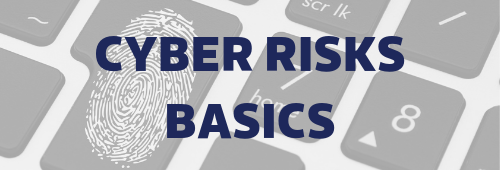 Cyber Insurance Protects Your Business
Cyber Insurance Protects Your Business
Having comprehensive cyber insurance coverage is essential for businesses to mitigate financial risks and protect themselves from the potentially devastating consequences of cyber attacks and data breaches. It's important to carefully review and select a policy that addresses the specific cyber risks faced by your business and provides adequate coverage for potential losses.
Types of Cyber Insurance Coverage
First-Party Coverage
Protects your business from direct losses caused by a cyber breach. This may include:
- Investigative and forensic services
-
Business interruption coverage
-
Data recovery expenses
Third-Party Coverage
Covers damages suffered by customers, vendors, or partners after a cyber incident. It may include:
- Legal defense and settlement costs
-
Liabilities related to data breaches or security failures
Cyber Crime Coverage:
Provides protection against losses from illegal digital activities, such as:
- Extortion and ransomware
-
Phishing or social engineering attacks
-
Wire transfer or funds transfer fraud
Common Cyber Attacks on Small Businesses
Small businesses are frequent targets of cybercriminals due to their often-limited defenses. Some common types of attacks include:
- Man-in-the-Middle (MitM) Attack:
Hackers intercept communications between two parties to eavesdrop on or manipulate information exchange, potentially leading to data theft or unauthorized access.
- Distributed Denial of Service (DDoS) Attack: Attackers overwhelm a business's network or website with excessive traffic, rendering it inaccessible to legitimate users and disrupting operations.
- Malware: Malicious software infects a business's computers or networks, enabling attackers to steal data, spy on activities, or disrupt operations.
- SQL Injection:
Attackers exploit vulnerabilities in a website or application's database to execute malicious SQL queries, gaining unauthorized access to sensitive data.
The Human Factor in Cybersecurity
Ultimately, the human factor tends to be the greatest assets and weakness when fighting cyber threats. Phishing attempts and social engineering are two very common tactics that bad actors use to attack your businesses.
- Phishing: Cybercriminals use deceptive emails or messages to trick employees into disclosing sensitive information like login credentials or financial data.
- Social Engineering:
Cybercriminals manipulate individuals through deception to obtain sensitive information, access systems, or perform actions that compromise security, highlighting the importance of employee awareness and training.
Employee education and awareness are critical parts of your cybersecurity defense plan.
What Does Cyber Insurance Cover?
A well-rounded cyber liability insurance policy may include:
- Business Interruption:
Compensation for lost profits due to interrupted operations caused by a cyber event.
- Bricking: Coverage for replacing hardware rendered inoperable due to cyber attacks.
- Computer Fraud:
Protection against theft of funds or property using cyber methods.
- Data Restoration:
Expenses related to restoring lost or damaged data.
- Extortion/Ransomware Coverage:
Reimbursement for ransom payments and damages caused by cyber extortion.
- Funds Transfer Fraud:
Coverage for losses resulting from unauthorized fund transfers.
- Notification Costs:
Reimbursement for expenses related to notifying affected individuals of a data breach.
- Privacy Regulatory Liability:
Coverage for losses due to regulatory investigations and claims.
- Social Engineering Coverage:
Protection against unintended payments made to cybercriminals through deception.
- Third-Party Liability Claims:
Coverage for damages resulting from third-party claims or lawsuits related to a cyber event.
Why Cyber Insurance Matters for Illinois Businesses
Cyber attacks can impact any company, no matter the size or industry. For Illinois small businesses, cyber insurance is an affordable and effective way to:
- Reduce financial risk from data breaches or fraud
-
Recover faster after a cyber event
-
Demonstrate compliance and credibility to clients
By investing in cyber insurance and understanding the extent of coverage it provides, businesses can mitigate financial losses and recover more swiftly from the impact of cyber breaches.
For help or to answer any insurance related questions about cybersecurity, please contact our team today at 217-528-7533 or e-mail us info@troxellins.com.